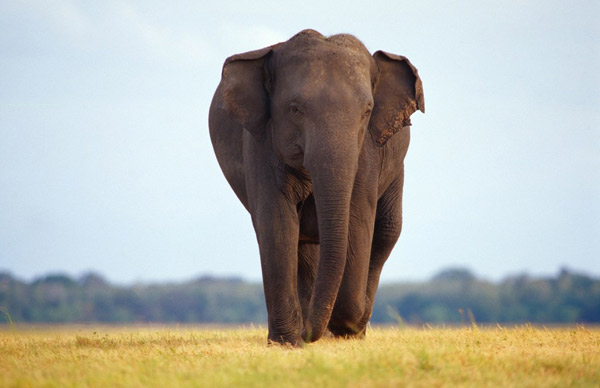Jumbo-sized attraction


If you want to see wild Asian elephants at close quarters, Yunnan has an option
Hidden in a tropical rainforest of southwestern Yunnan province's Xishuangbanna Dai autonomous prefecture is an elephant paradise.
The Xishuangbanna Wild Elephant Valley is China's first national theme park for the animal and claims to be the only place in the world where you can safely observe wild Asian elephants at close quarters.
More than 300 wild Asian elephants are in the park, and visitors can also watch the elephants dance, walk on a single-plank bridge or play with balls using their trunks, besides intimate interactions with the giant animals.
A pedestrian lane runs more than 4,000 meters through the tropical forest, ensuring close contact with nature.
The elephant museum is there for those who want to know more about the animal.
Meanwhile, the park received more than 100,000 visits during the recent Spring Festival holiday.
At the park, its employees in gray suits also attract attention as they feed and play with the elephants and offer guidance to visitors, while keeping visitors from leaving the sight-seeing lanes to see the elephants.
"The wild elephants get cranky if they are disturbed," one of the park's employees Chen Jiming tells China Tourism News.
Major holidays like Spring Festival mean more work for Chen and his colleagues.
Most of Chen's colleagues are male and have spent more time with the elephants than with their own children.
So, some refer to them as "elephant papas".
Chen has been taking care of wild elephants for the past 20 years.
"We check how the elephants are feeling every morning, take their temperatures, check their feces and clean their sheds," says Chen. And the elephants are then led for exercises.
Wild Asian elephants are under the State's first-class protection and mainly live in Yunnan's Xishuangbanna, Pu'er and Lincang.
Chen and his colleagues have to endure the hot humid climate all year round besides mosquito attacks.
Elephants are not fans of strangers, and therefore, Chen and his colleagues can take only three days off a month. But Chen says that interactions with the elephants make all discomforts well worth it.
At the moment, around 10 elephants receive professional medical care and rehabilitation training at the park, according to Feng Jin'e, the deputy general manager of the site.
A 3-year-old elephant Yangniu is getting back on its feet at the rescue center.
The cub which suffered an umbilical cord infection and arrhythmia was abandoned by its mother. And the park saved it from the jaws of death.
Now, Yangniu is alive bursting with energy and is not timid in human presence.
Yangniu is just one of the elephants that have gained a new lease on life at the center.
Some of them were severely hurt, while some were addicted to drugs after being used in drug trafficking.
But they have all overcome their problems, says Feng.
"We do not keep elephants behind iron fences permanently, but let them spend time in their natural environment, paving the way for them to go back in nature later," says Chen.
All elephants are taken out to adapt to the wild environment on a daily basis.
The idea is to develop their survival skills and maintain their wild nature.
"After all, that is their home," says Chen, adding that he and his colleagues expect more people to become aware of elephant protection after visiting the park.

































